It can be confusing to find the exact service and care necessary for an older adult. You may encounter terms for home health care, home care, personal care and companion care services that can be tricky to understand. At Corewood Care, we provide many of these services across the greater Montgomery and Prince George’s counties in Maryland, Northern Virginia and the Washington D.C. region, in accordance with our licensures. In this guide, we’ll explain the difference between home health and older adult home care to make it easier to find the necessary services for you or your family member.
What Is Home Health Care?
Home health and home care services have some similarities in service capabilities, but they are not the same. Let’s begin with home health care. This term describes more in-depth, skilled medical care that comes to the home so the client doesn’t have to visit a doctor’s office or other medical provider. Home health care may be necessary to treat a chronic health condition or during recovery from surgery or a serious illness or injury.
These services are considered clinical or skilled care, so licensed caregivers provide them. Home health caregivers can range from a registered nurse (RN) to a certified nurse’s aide (CNA), according to pertinent licensure requirements. Private insurance companies or Medicare and Medicaid will usually cover these services.
Providers often prescribe home care or recommend it as part of a care plan. Older adults may need home health care if they require supervision after a medication change, recently received a discharge from a skilled nursing facility or rehabilitation center, or lack the ability to travel safely to a doctor’s office. Other older adults may need this care if they experience a decline in their functions that requires therapies to help regain their independence.
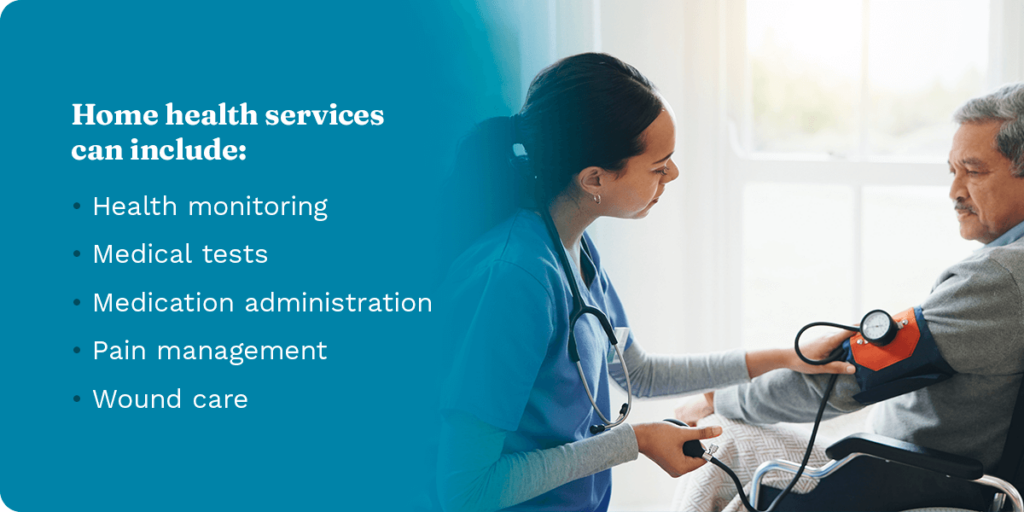
Home health services can include health monitoring, medical tests, medication administration, pain management and wound care. Although a home health care provider may offer some similar services as a home care provider, such as medication reminders, they will not deliver the same personal touch, social interactions or daily activity assistance as home care.
What Is Non-Medical Older Adult Care?
Home care usually refers to making life better for older adults as they age in whatever location they call home, including independent living facilities, apartments or houses. Home care is non-medical care and can include services like transporting the client, assisting with dressing and grooming, house cleaning and toileting assistance. Some people also refer to home care as a personal care service because caregivers will use a holistic approach to meet the client’s needs while helping with hygiene, medication reminders and other unique challenges.
Home care can be a long- or short-term service. For instance, home care may be a temporary need for someone recently released from the hospital. Home care can also provide valuable social interaction, making older adults feel more comfortable.
Choosing Home Care or Home Health Care
Ultimately, choosing home care or home health care will depend on each client’s unique needs. If a client needs wound care, specialized therapies or medication administration, they will be more suitable for home health care. Meanwhile, older adults needing assistance navigating activities of daily life (ADLs) can benefit from home care.
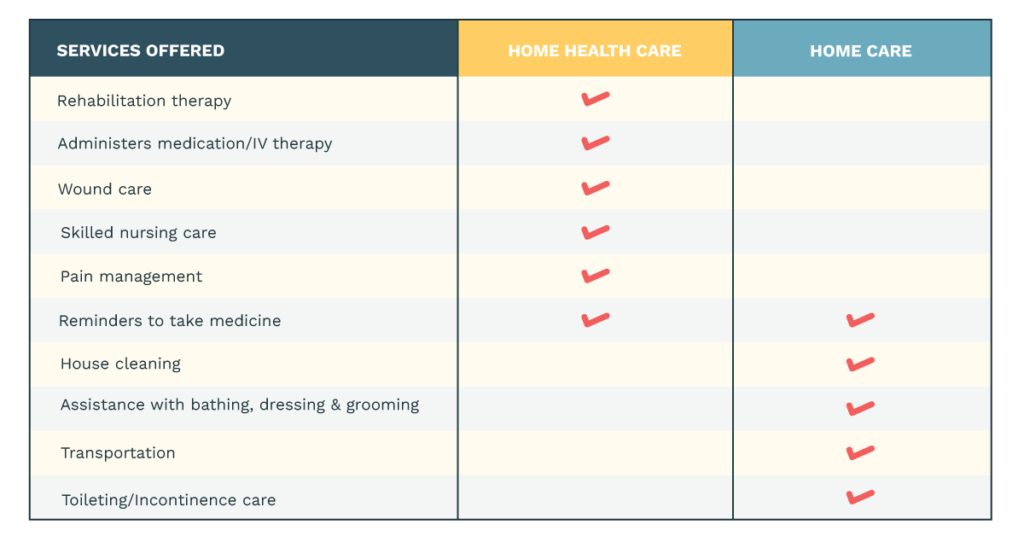
However, when choosing necessary services, you should also consider price. Although both types of care typically have an hourly rate, home health care services may be more expensive because the caregiver can administer licensed medical support. If an older adult needs or wants both types of care, it’s possible to create a more budget-friendly schedule that allows for each type of assistance. This way, the client can receive the medical attention they need from home while also accessing a supportive and dedicated caregiver to help them navigate daily activities.
Get Support at Home From Corewood Care
At Corewood Care, we tailor in-home care services to each client. Our home caregivers also help keep the client engaged during our visits with conversation and interaction. The term companion care refers to the more social side of home care — these clients perhaps do not need help with bathing or grooming but would benefit from someone to play cards with, reminisce with or engage in activities that keep the brain stimulated.
Corewood Care can provide the customized in-home care an older adult needs to feel comfortable while they rest, heal or navigate their homes. We’ve served clients across the region with home care services, respite care and 24/7 care for many years. If we can be of service, answer questions or help find the right service, please give us a call at 301-909-8117, schedule a free home assessment or use our chat.
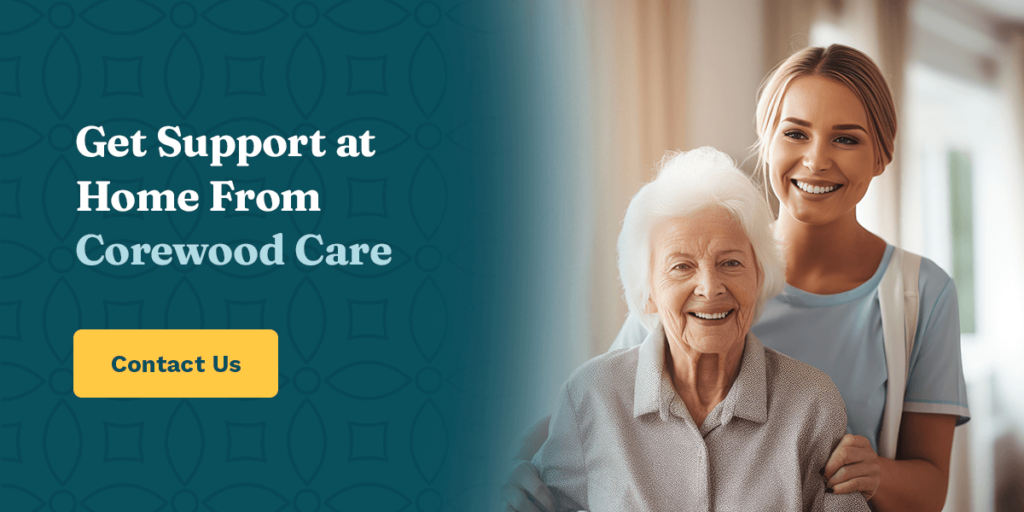
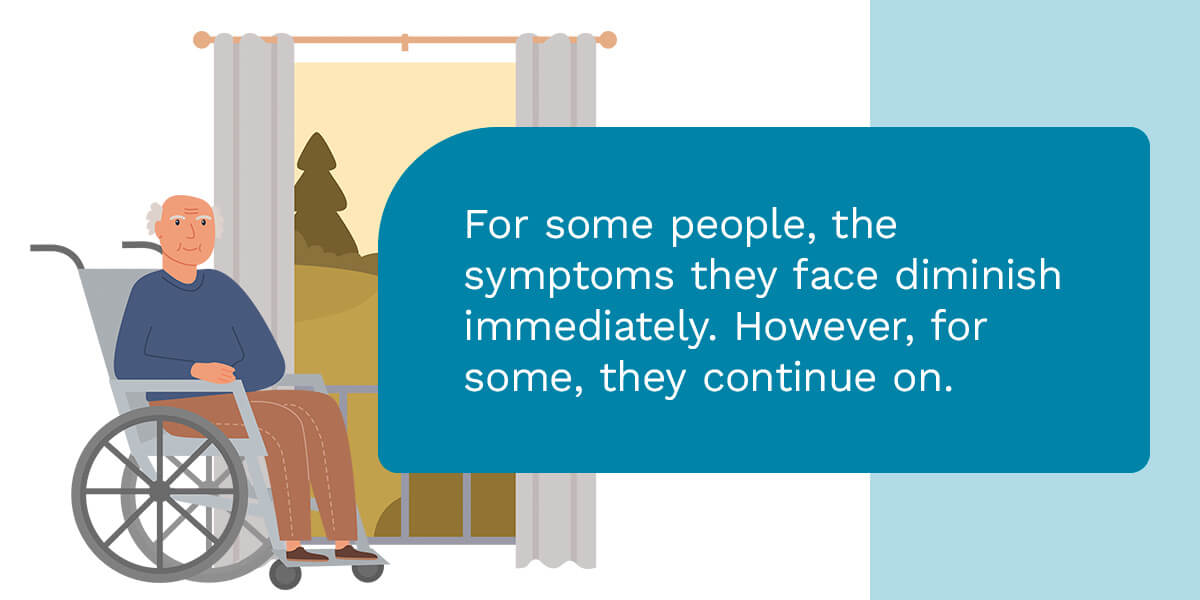
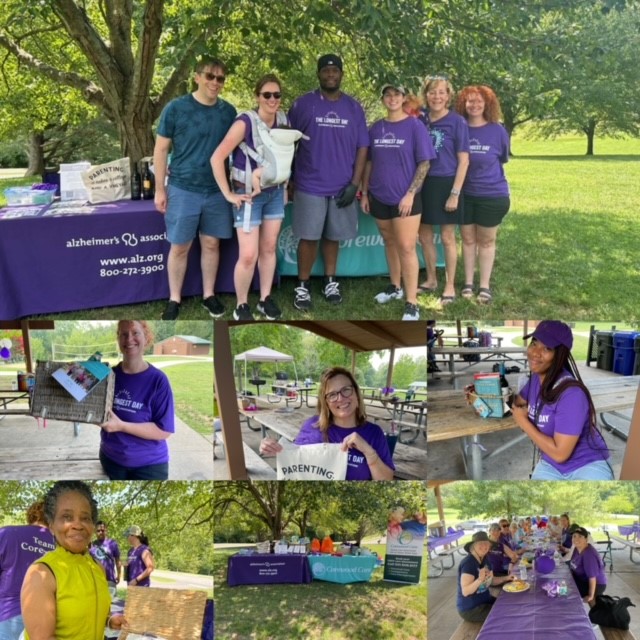
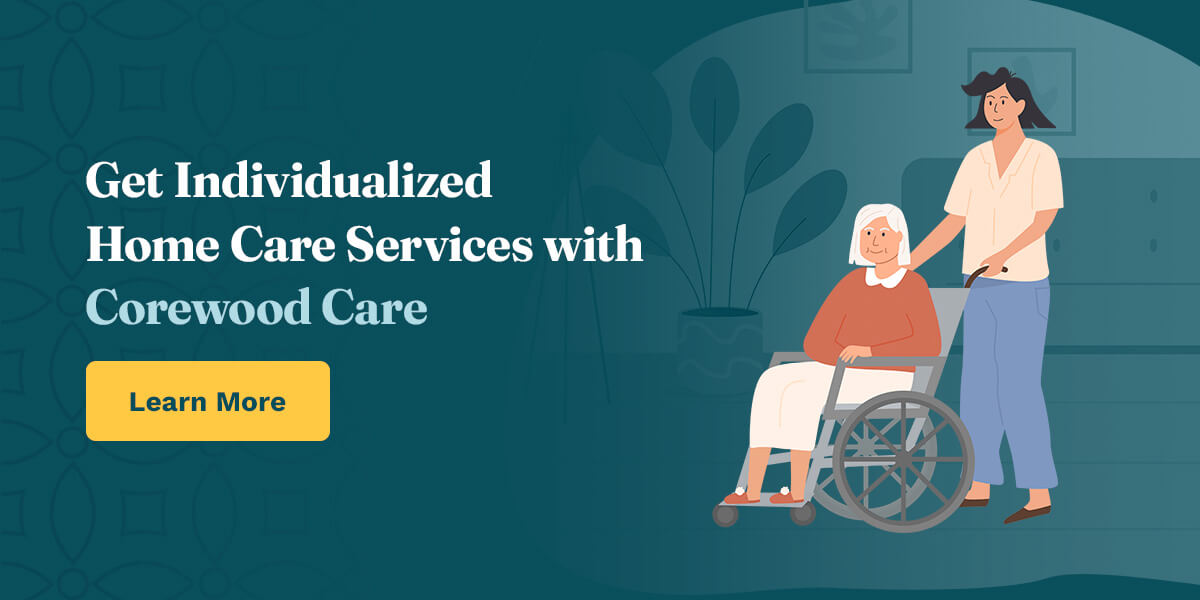
Recent Comments